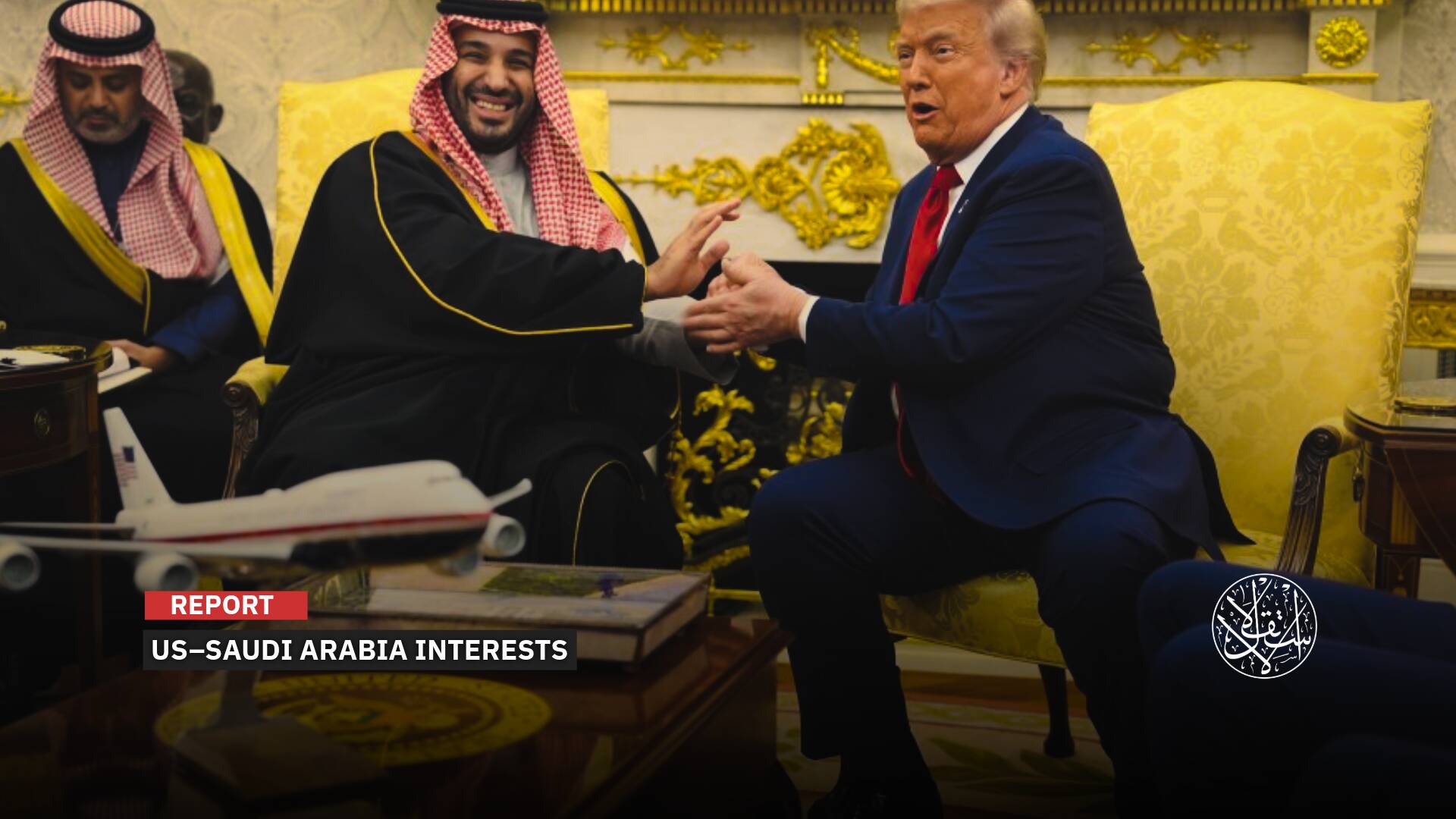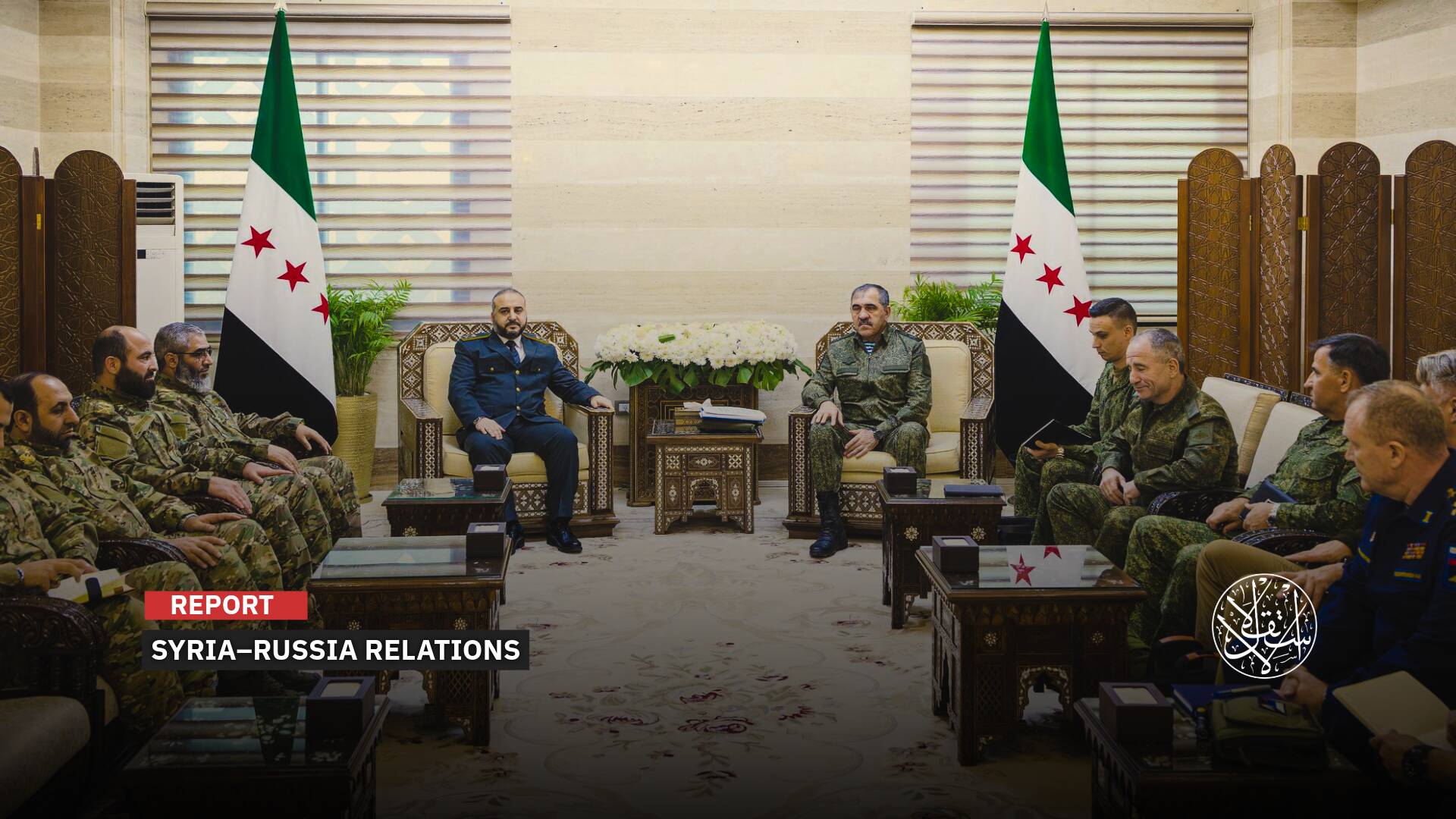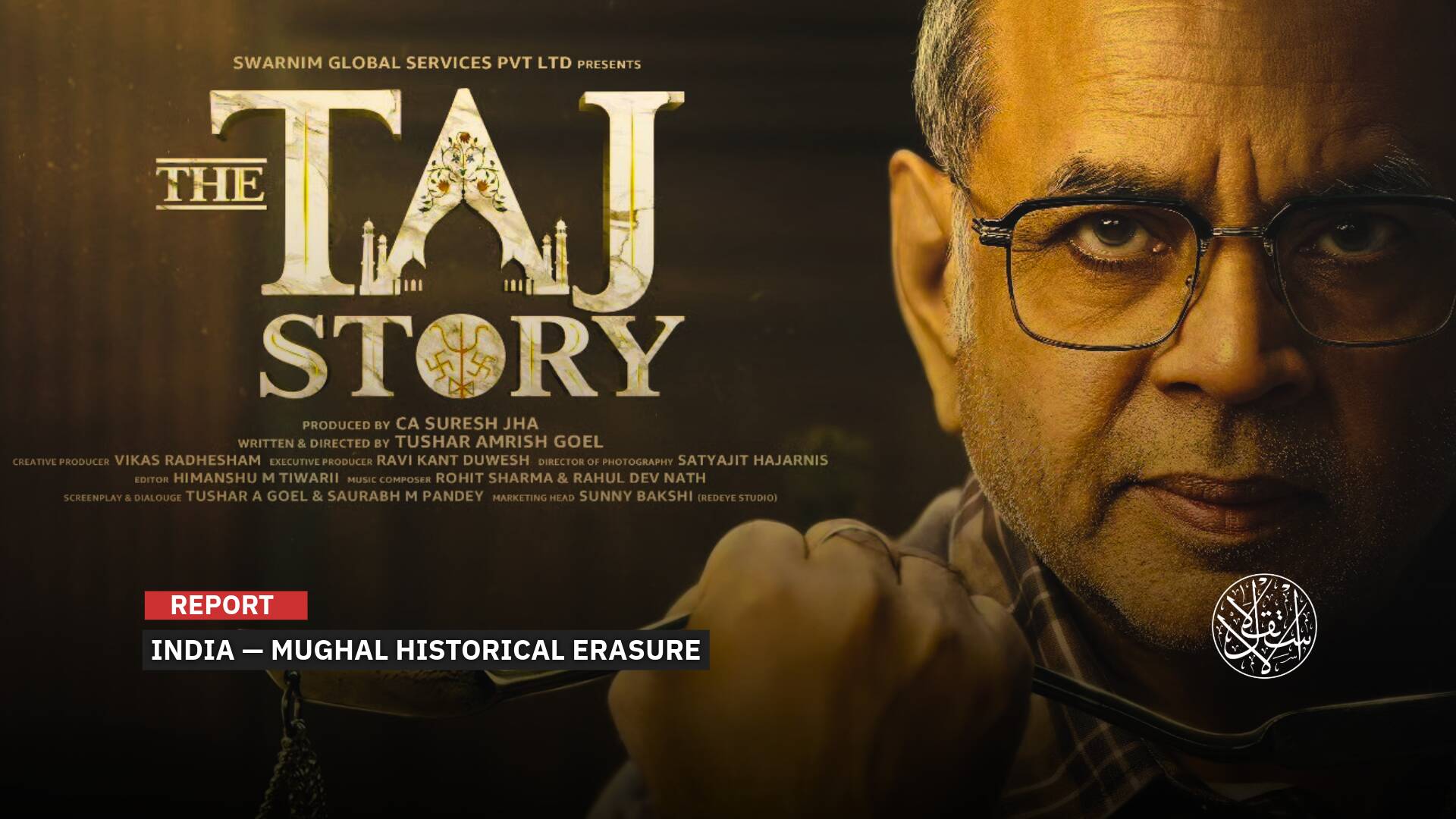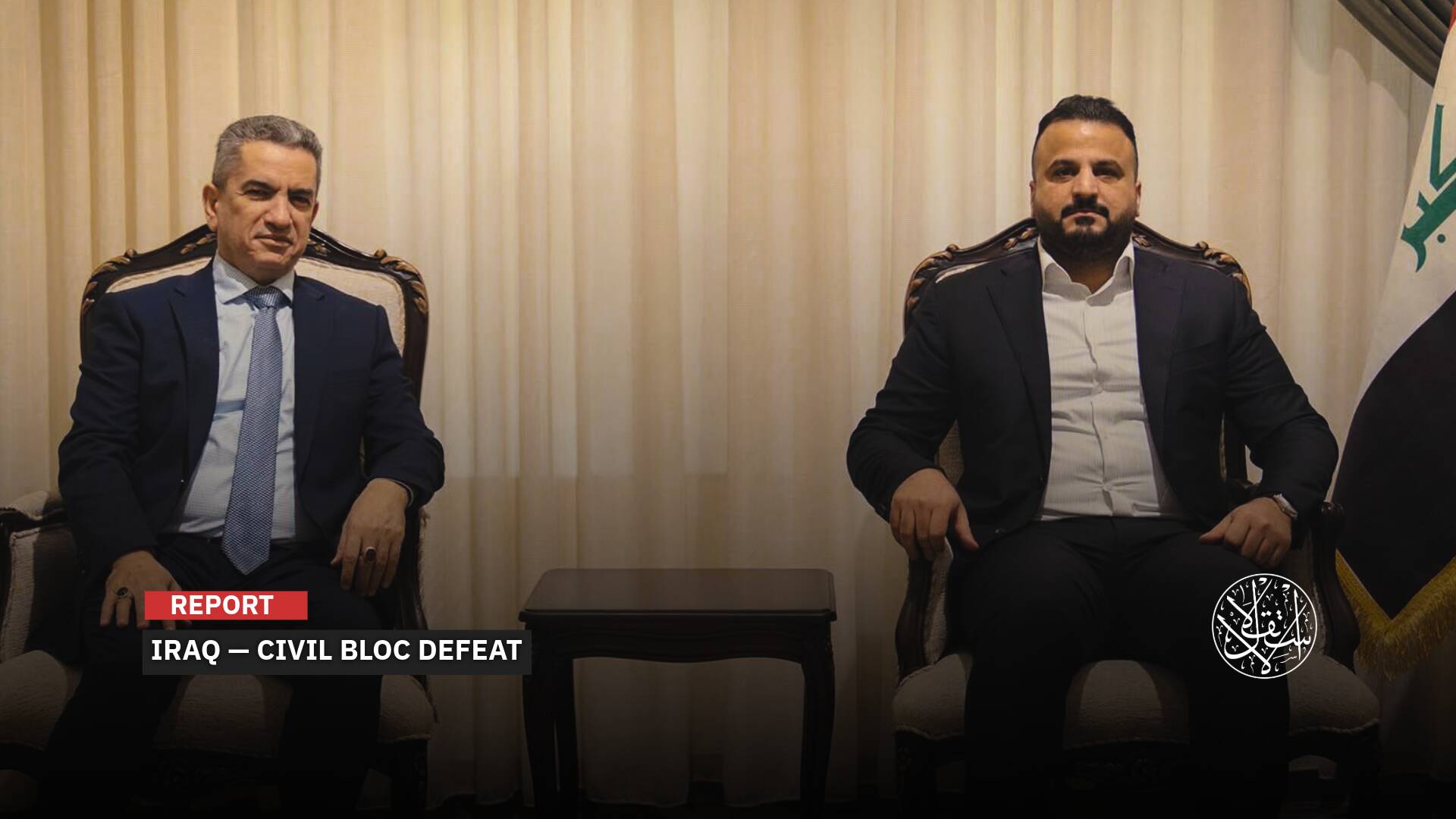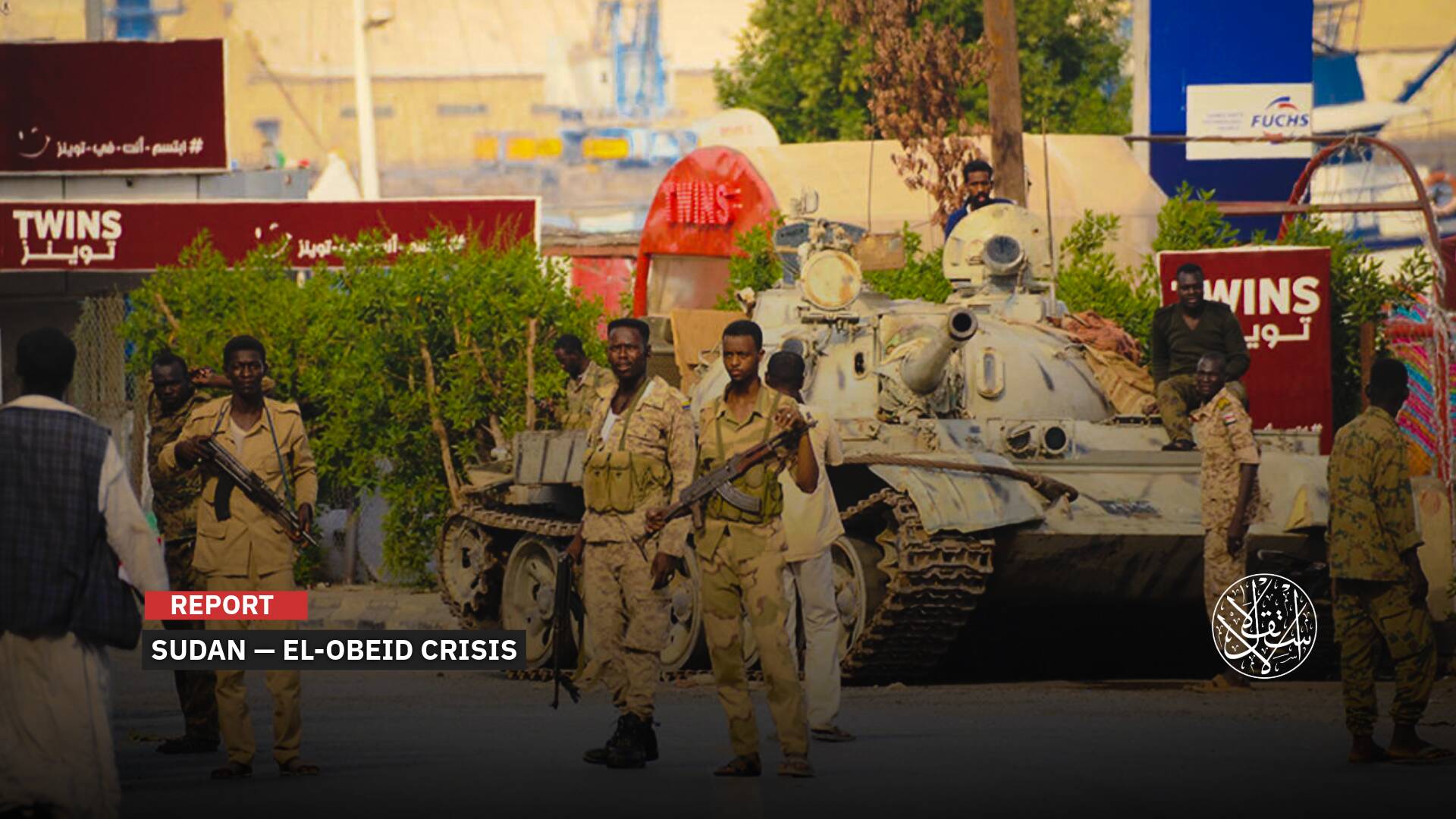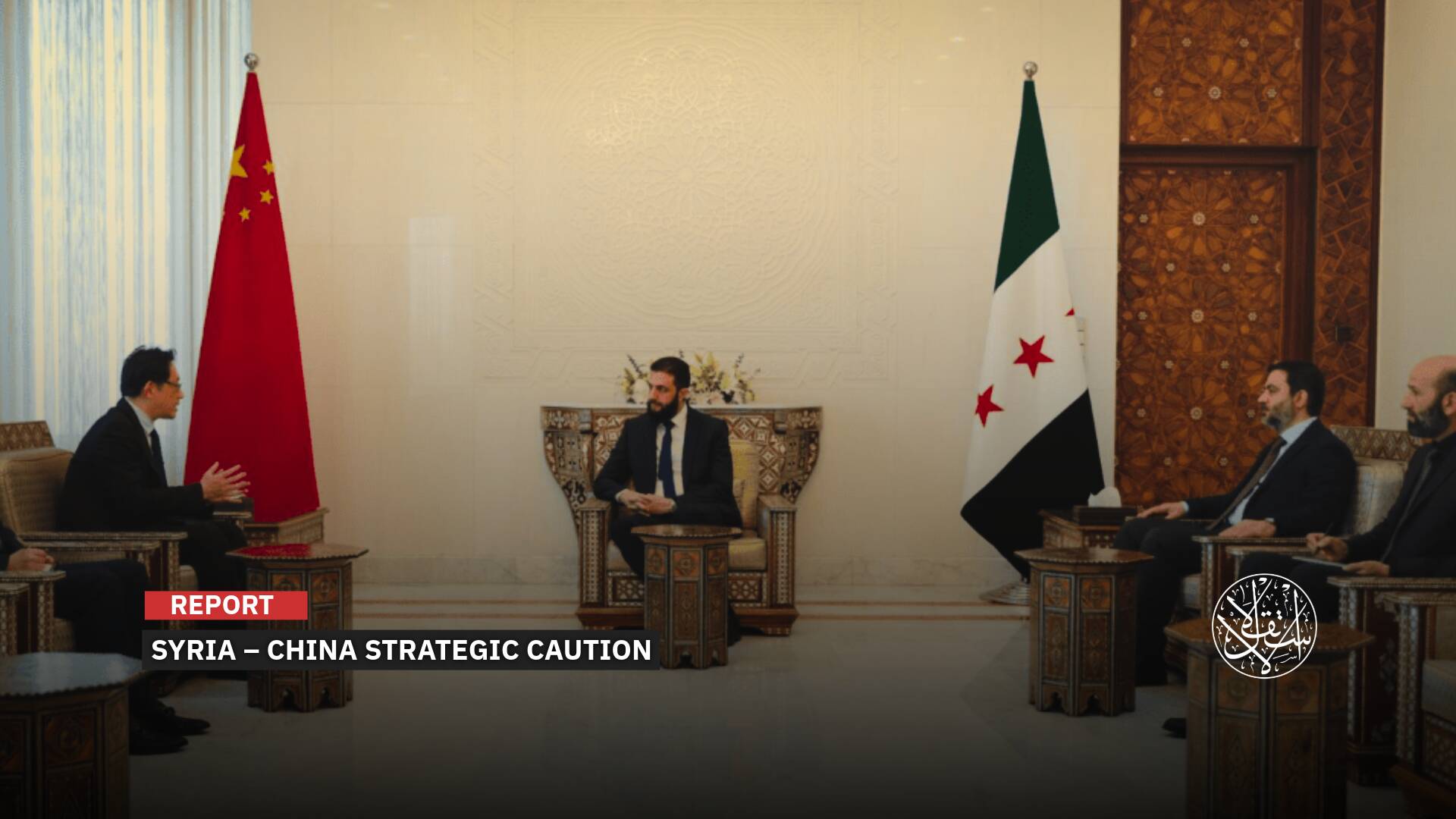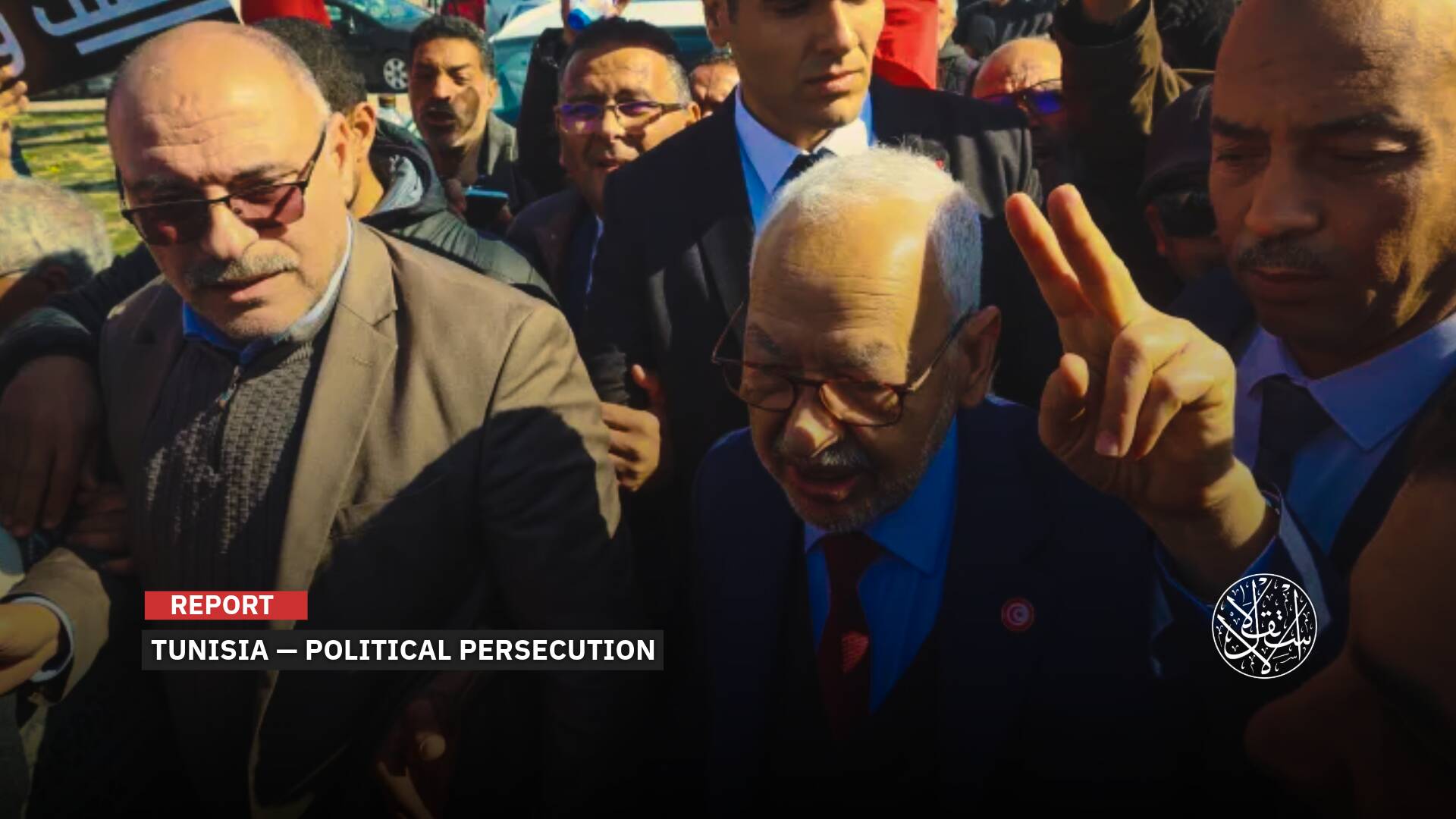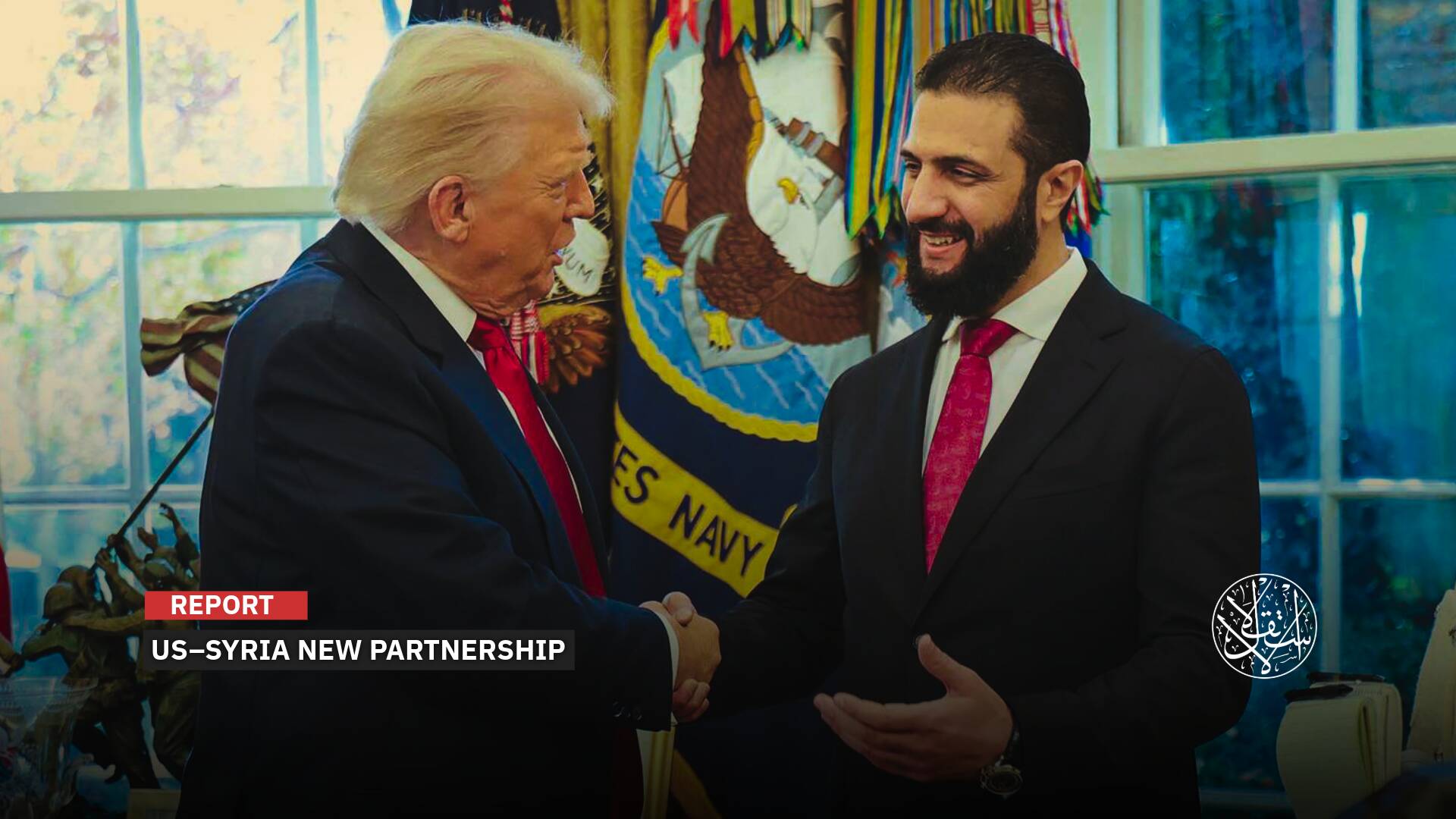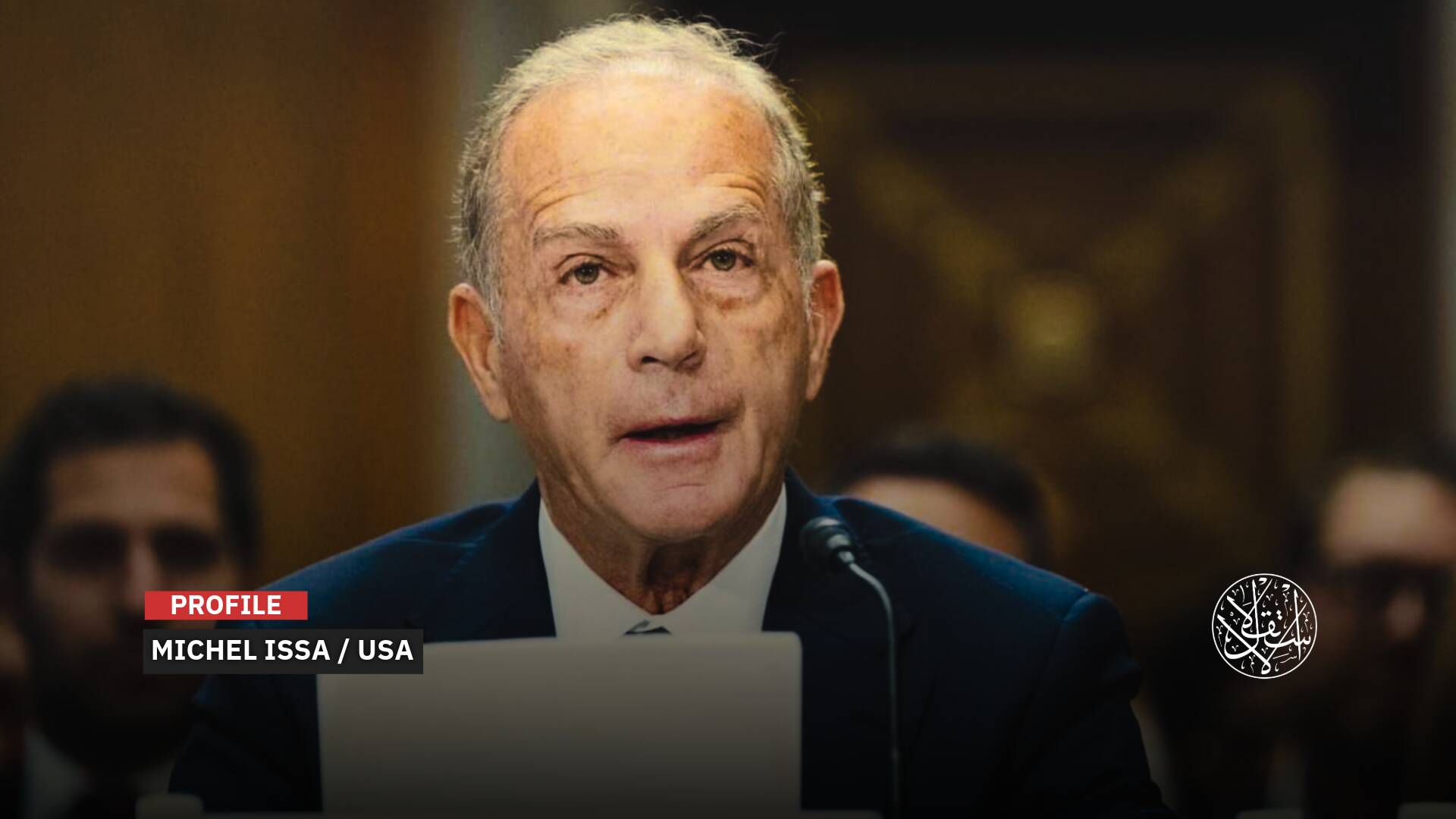How Genocide Case Against ‘Israel’ Turned Into a Battleground Between Trump and South Africa
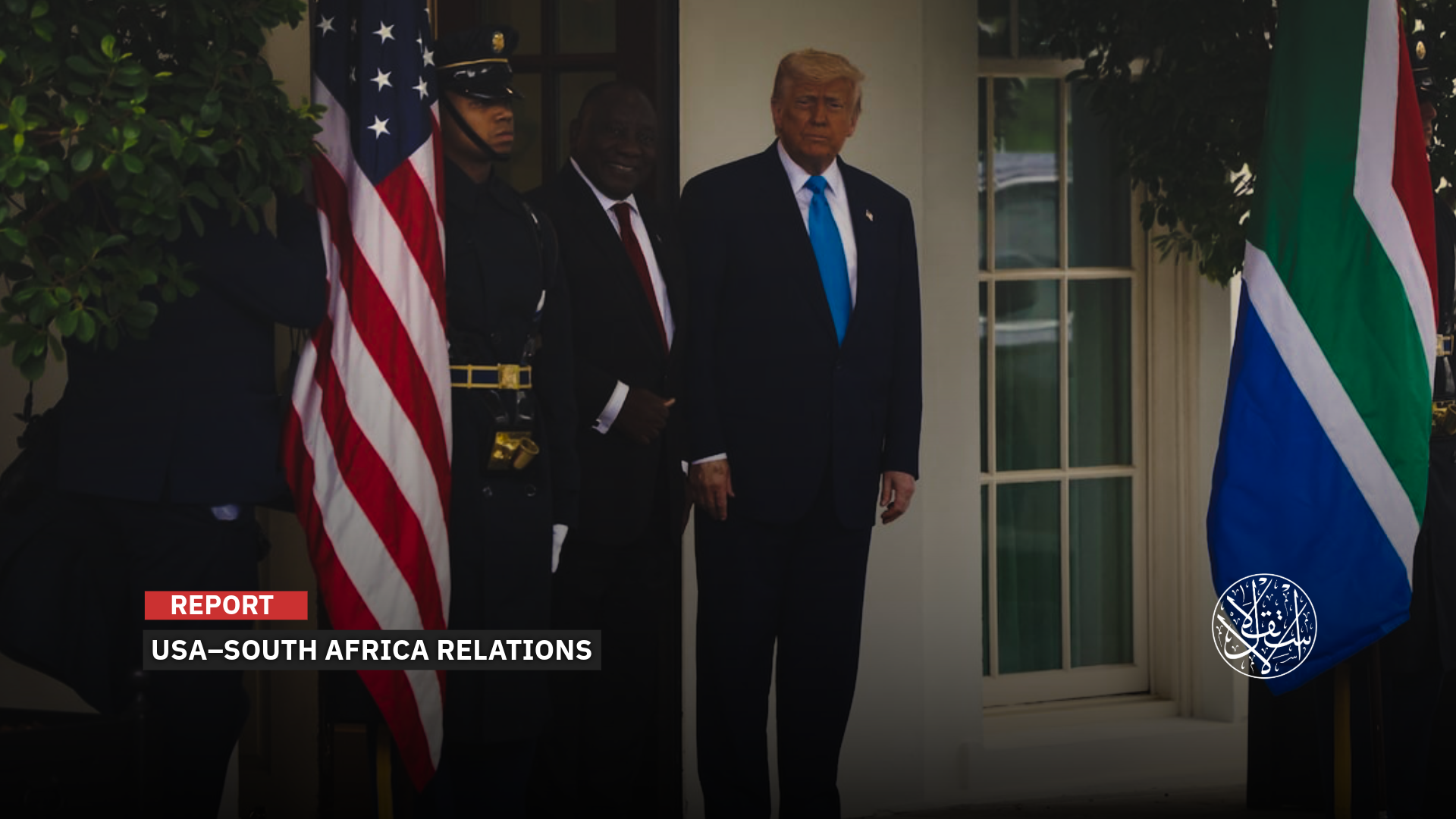
“Western leaders have long tried to shut down African agencies through mischaracterisations.”
As the G20 summit kicked off in Johannesburg, South Africa, on November 22, 2025, the most telling image of escalating global tensions was the empty American chair.
Two weeks before the summit, US President Donald Trump announced that Washington would not send any official representatives to South Africa, citing what he called human rights violations committed there.
Specifically, Trump referred to what he termed racial persecution of white farmers in the country, stating that holding an international summit of this magnitude in South Africa was a moral disgrace.
However, a deeper analysis of this stance reveals that American anger does not actually stem from these human rights allegations, but rather is linked to international politics, particularly the Palestinian Cause and the escalating tensions in Gaza.
Unprecedented Move
South Africa, the host country of this year's G20 summit, is no ordinary nation. It spearheaded one of the most prominent legal battles against “Israel” in recent decades, filing a lawsuit before the International Court of Justice (ICC) accusing “Israel” of committing genocide against the Palestinian people in the Gaza Strip.
This unprecedented move, which placed “Israel” under the scrutiny of international legal accountability, has deeply angered Washington, which views it as a direct challenge to its traditional role as a guardian of international law.
Although the South African Foreign Ministry described Trump's decision to boycott the summit being held on its soil as regrettable, officials in Pretoria are well aware that the matter goes beyond mere diplomatic niceties.
The escalating American pressure and attacks on South Africa are reminiscent of old Western methods of punishing African nations that deviate from the expected course.
For decades, the West's approach to Africa has been based on a logic of domination and punishment, even going so far as to label the late South African leader Nelson Mandela a terrorist during his years of struggle against apartheid.
Today, this scenario is being repeated in a new way, targeting a country that has decided to stand up to “Israel” on the international legal stage, taking a stance that reflects its desire to defend justice and legitimacy.
Since South Africa began taking action on the Gaza issue, American media and political campaigns aimed at discrediting it have intensified.
Conservative Christian right-wing networks in the United States, from Fox News to the Christian Broadcasting Network (CBN), have been busy reproducing narratives about racial oppression in South Africa, the persecution of white Christians, and state failure.
It has become clear that these narratives are not aimed at defending human rights, but rather at creating a cultural and political environment that justifies attacking Pretoria because of its position on the Gaza issue.
These campaigns were not limited to the media, they quickly spread to the centers of political decision-making.
In February 2025, just one month after Trump took office, he issued an executive order halting all American aid to South Africa, based on accusations of the expropriation of white-owned land without compensation.
Trump ignored the fact that the South African constitution only permits expropriation through strict legal procedures and with fair compensation, with rare exceptions governed by the Constitutional Court.
But this oversight was not an accident, it was part of a systematic political campaign aimed at portraying South Africa as an anti-Western and anti-white nation, and therefore undeserving of American support.
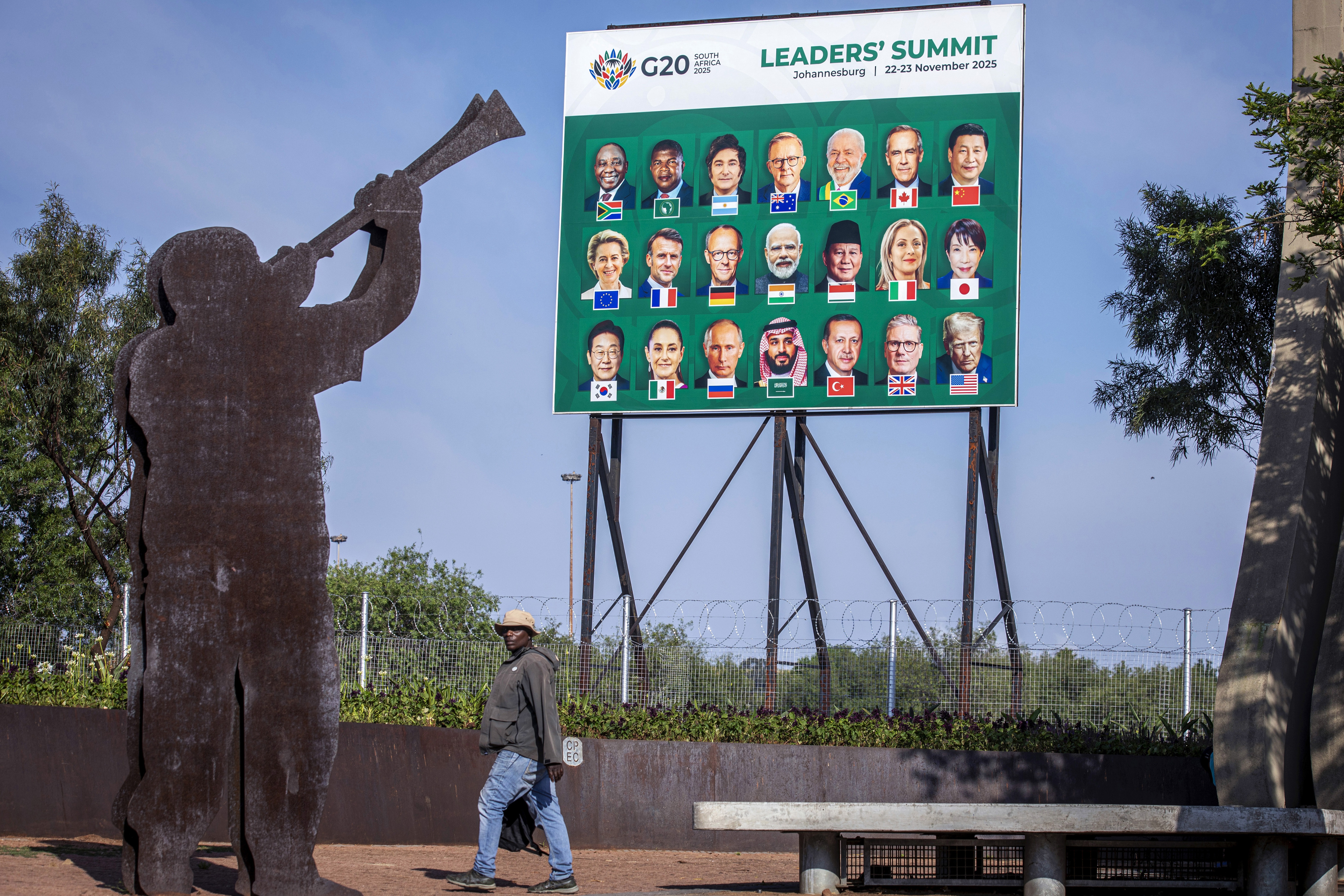
The Afrikaner Pretext
Just days after the decision to halt aid, the Trump administration announced an expansion of US refugee resettlement programs, giving special priority to Afrikaners, an ethnic group in South Africa primarily descended from Dutch settlers who arrived in the country in the 17th century.
This group includes some French and German settlers who later integrated with them, and they constitute between 5% and 7% of South Africa's total population.
This decision, based on allegations of government persecution, served as a clear message from Washington that it was seeking any pretext to present a distorted image of reality.
Despite the Trump administration's attacks, it failed to isolate South Africa on the international stage. Pretoria leveraged its position as the current chair of the G20 to strongly advocate for a new global agenda.
This agenda focused on economic justice, reforming international financial institutions, and ending Western dominance over global economic decision-making.
In a notable move, South African President Cyril Ramaphosa commissioned Nobel Prize-winning economist Joseph Stiglitz to prepare a comprehensive report on global inequality for the G20 summit.
The report's findings were shocking, revealing that the richest 1% of the world's population owns more than 40% of the new wealth accumulated since 2000, while more than 80% of humanity lives in conditions the World Bank classifies as suffering from high levels of inequality.
These figures are not merely economic data, they reflect a profound political context that illustrates a larger conflict: the struggle of the Global South to dismantle the economic structures that perpetuate poverty and marginalization, versus the struggle of conservative forces in the West to defend a global order that has proven its failure.
South Africa's genocide case against “Israel” has become a clear political declaration that Africa will no longer accept the marginal role imposed upon it for decades.
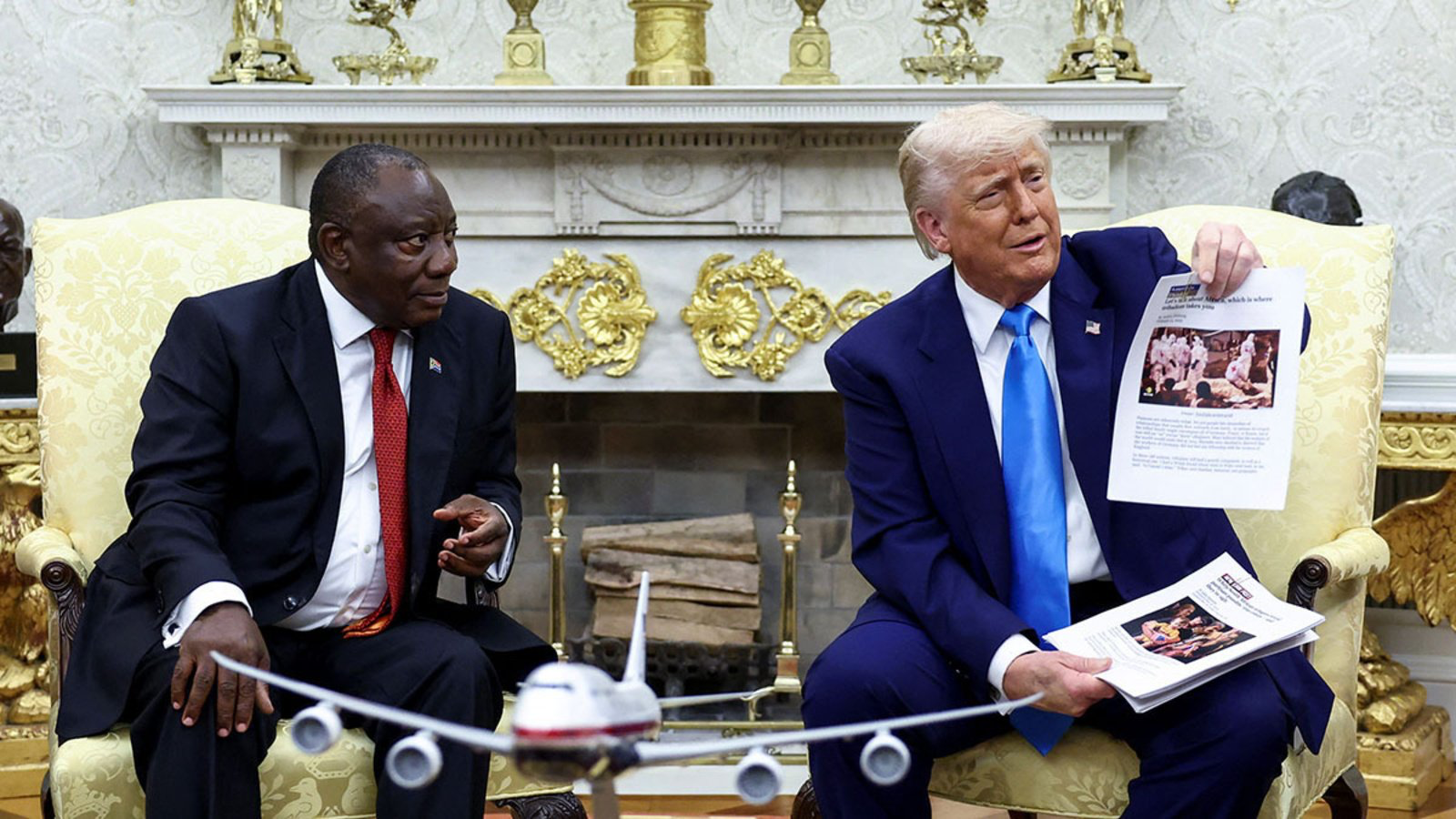
Ideological Perspective
“Trump’s reaction to this legal process reflects an ideological perspective rooted in Christian nationalist currents within the Republican Party,” said Tavi Mhaka, a social and political commentator with a Bachelor of Arts degree with honors from the University of Cape Town.
In a Facebook post dated November 2, he added, “These currents view American hegemony not merely as a strategic choice, but as a moral imperative, and any attempt by a country like South Africa to hold Israel accountable before international courts is seen as a challenge to this imperative.”
“Under Trump, the U.S. not only sanctioned Pretoria, but also withdrew from key UN bodies, attacked the ICC, and refused to submit to any oversight from UN human rights experts,” he emphasized.
“In contrast, South Africa presented a different vision of the international order, based on multilateral cooperation, respect for international law, and a redistribution of economic and political power that reflects the new global reality, which is no longer the exclusive domain of the West,” he stated.
Thus, Trump's attacks on South Africa appear to be part of a broader attempt to punish a country that has challenged the Western system on one of the most sensitive issues on the international stage: the Gaza issue.
The lawsuit filed by Pretoria before the ICJ not only destabilized “Israel” but also shook the very foundations of American discourse, demonstrating that a country from the marginalized Global South is capable of changing the rules of the game through the tools of international law, not through traditional political subservience.
While history proves that the West has often succeeded in punishing countries that have deviated from its path, as happened in the case of Iran, for example, the situation today appears different.
The world is undergoing profound transformations, and the Global South has become a cohesive political and economic bloc capable of challenging the old hegemony.
Trump’s war on South Africa reveals that the conflict is not merely about allegations of the persecution of white farmers, nor about the G20 summit, nor even about purely domestic politics.
It is a deeper conflict about who has the right to define international morality, who has the right to hold Israel accountable, and who has the authority to determine whether the Palestinians are a people deserving of protection.
Through its genocide case and its diplomatic leadership, South Africa has clearly stated that this right is no longer the exclusive domain of any one group.
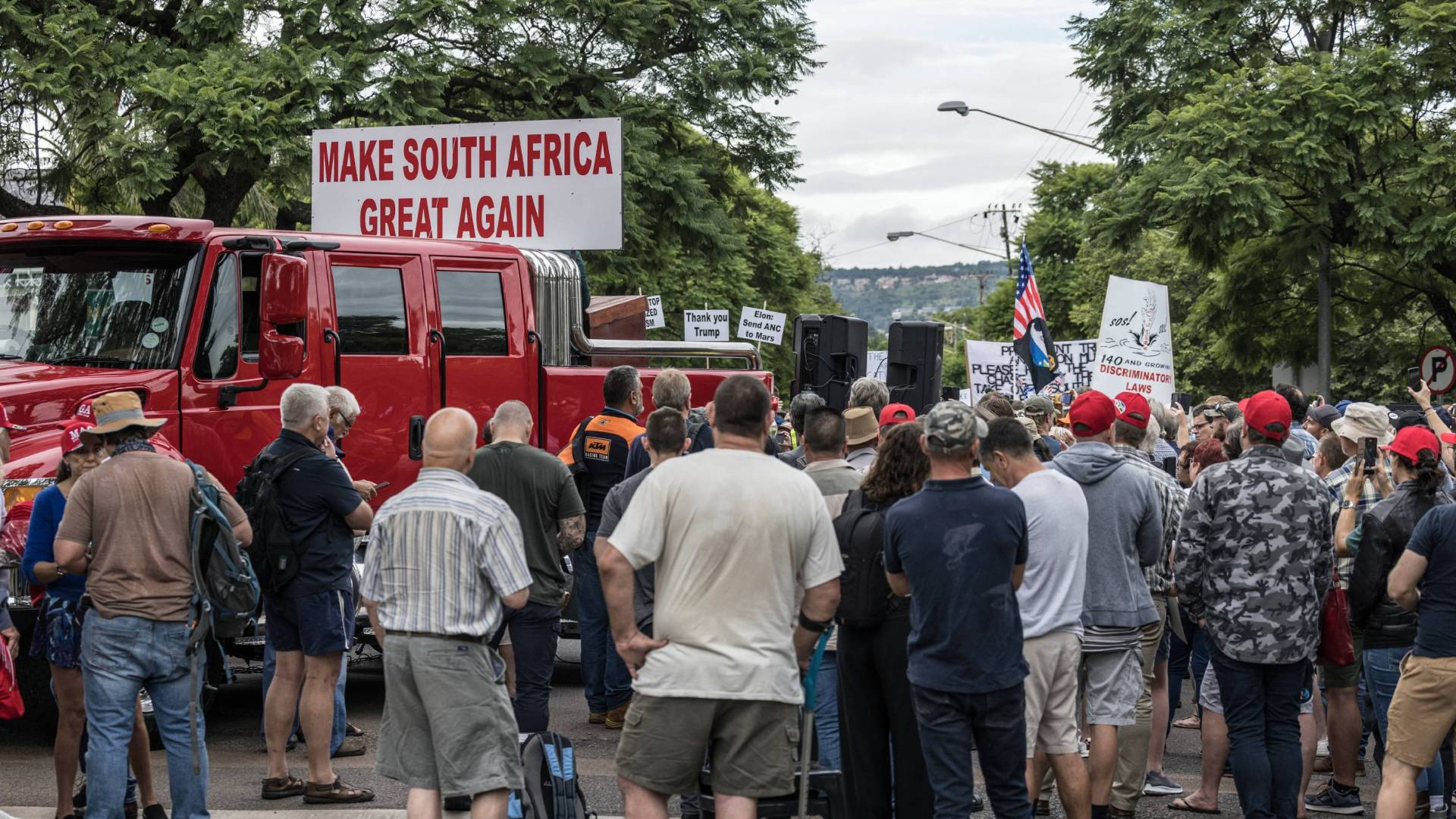
Legal Action
South Africa’s case before the ICJ has opened the door to a wave of legal action taken by various countries and organizations against “Israel”.
On January 18, the governments of Mexico and Chile announced their intention to refer “Israel” to the ICC for violations committed against Palestinians, stating that UN reports could form the basis for charges of crimes falling under the court's jurisdiction.
In Switzerland, on January 19, the Public Prosecutor's Office confirmed receiving criminal complaints against Israeli President Isaac Herzog during his participation in the World Economic Forum in Davos.
The Public Prosecutor's Office explained that it would examine these complaints according to standard legal procedures, while continuing to coordinate with the Ministry of Foreign Affairs regarding the issue of immunity enjoyed by Herzog as a head of state.
This coincided with an escalation in the rhetoric of international human rights organizations. On January 24, Amnesty International announced that there were indications of genocide in the Gaza Strip.
It asserted that this was part of a long-standing system of discrimination and oppression against Palestinians under the Israeli apartheid regime.
In the United States, California witnessed an unprecedented legal development when a federal court held a hearing on January 26, to consider a lawsuit filed by the Center for Constitutional Rights accusing President Joe Biden and the Secretaries of State and Defense of complicity in Israel's genocide in Gaza and of violating the 1948 Genocide Convention.
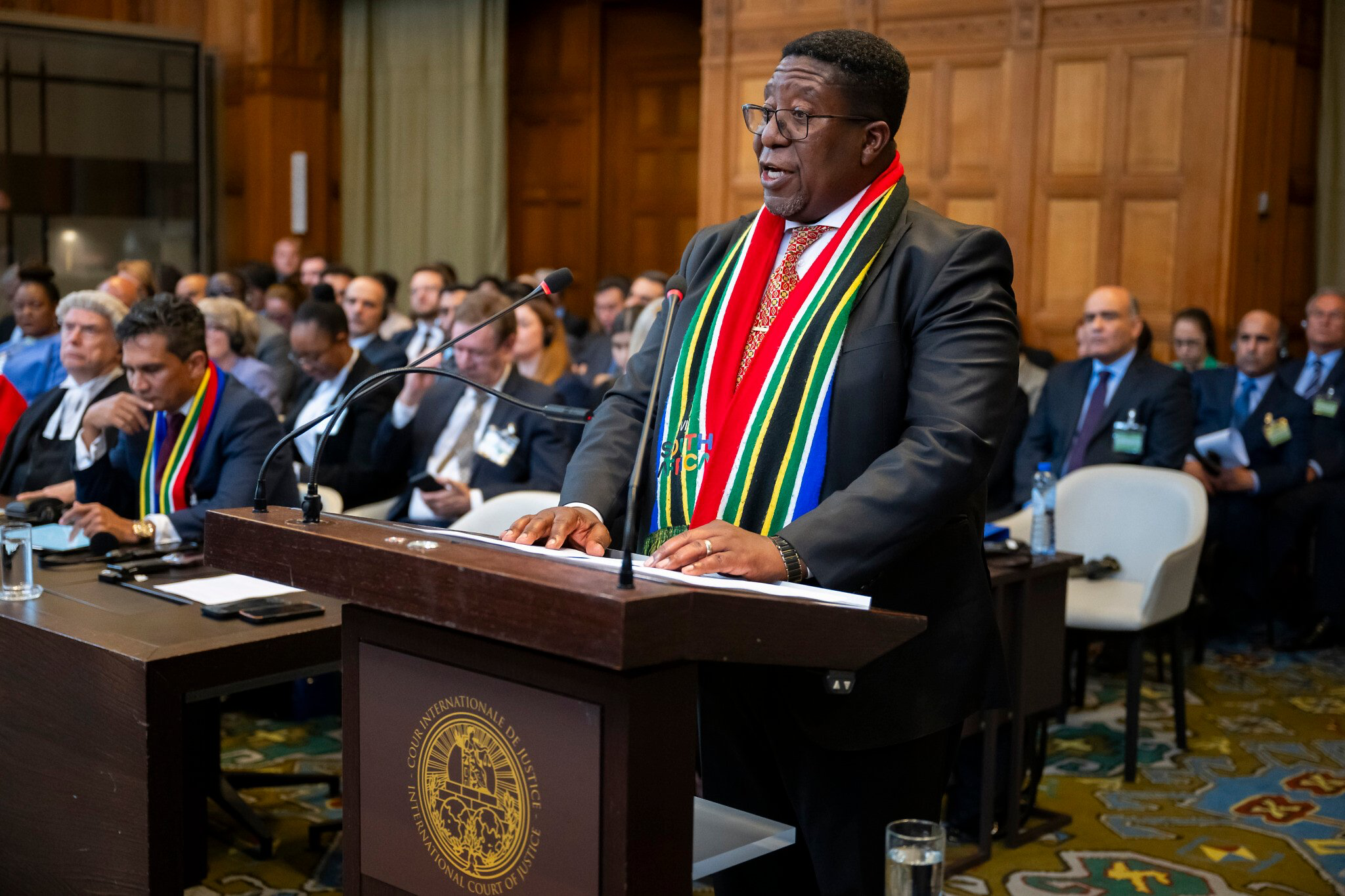
Meanwhile, the ICJ launched a series of hearings at the request of the UN to issue an advisory opinion on the legal consequences of Israel's policies and practices in the occupied Palestinian territories, including East Jerusalem.
The hearings began on February 19, 2024, with broad participation from states including Jordan, Indonesia, Bangladesh, Tunisia, Slovenia, Qatar, and Egypt.
On February 21, Egypt, represented by legal advisor Jasmine Moussa, presented its formal arguments before the ICC in The Hague, highlighting the cumulative effects of the Israeli occupation and its violations in the Palestinian territories.
This sustained international activity followed South Africa's initiative to pursue legal action against “Israel”, which it initiated on December 29, 2023. This prompted countries supporting “Israel”, particularly the U.S., to seek retaliation against Pretoria and to isolate it with diplomatic crises.
Sources
- Trump announces that America will not participate in the G20 summit in South Africa [Arabic]
- Trump’s war on South Africa betrays a sinister threat
- Trump attacks South African president in the Oval Office with allegations of "white racial persecution" [Arabic]
- Are Trump's statements reviving an old colonial discourse towards Africa? [Arabic]
- Are the accusations made by Trump against the South African president during their meeting at the White House true? [Arabic]



